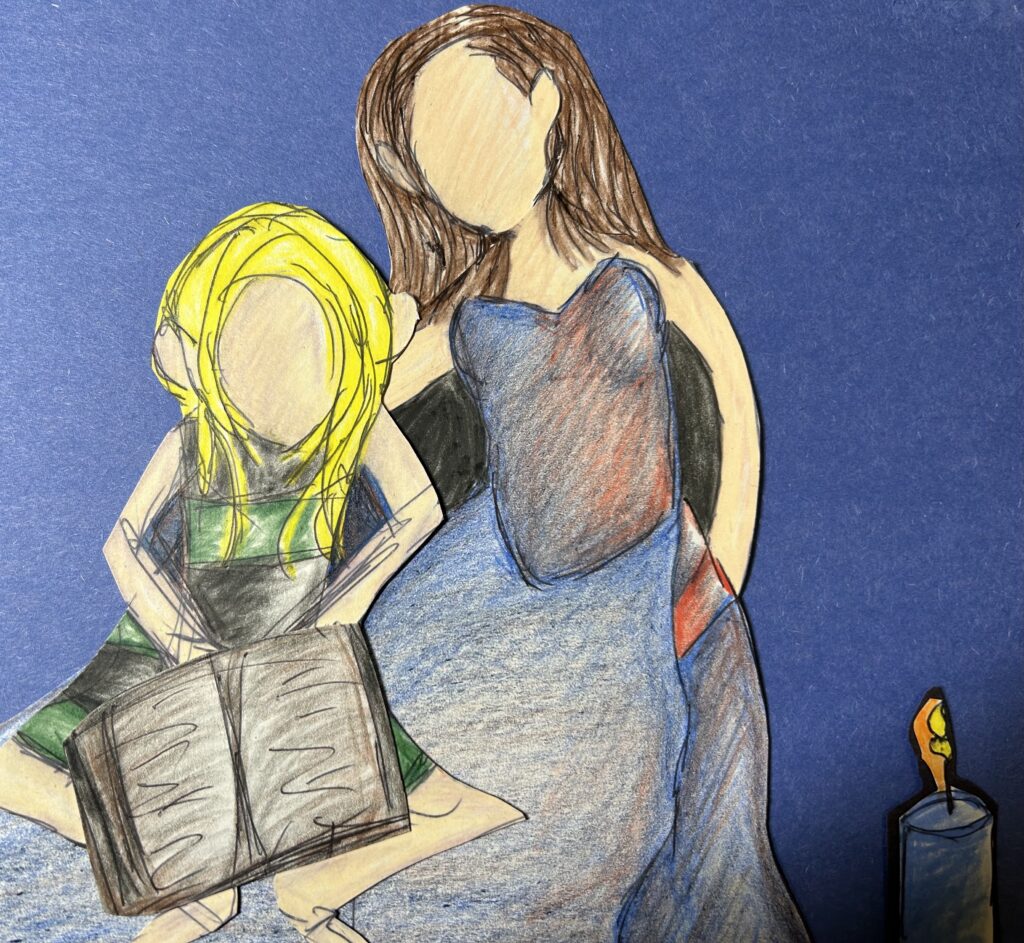
Often, I have been approached with the question, “How can I help a person suffering with mental illness?”
In my experience, here are a few pointers:
Never play into a person’s delusions. With great care, gently handle a situation without causing the person to believe they are devastatingly wrong, but hear them out. Carefully assure the person that everything will be alright, without pretending to understand what they are experiencing. Comfort in confusion.
The mental health system is flawed in many ways. For example, when I visited several hospitals in 2013, the staff treated my delusions as if what I strongly believed was indeed the truth. No one said, “It will be okay.” “You are in a safe place.” “You and your family are not in danger.” They played along.
My parents and sisters visited me as frequently as possible, assuring me of these truths; yet being surrounded day after day by lies from hospital personnel strengthened my doubt. My little sister, Jessica, discovered that eye contact was crucial. She looked deep into my eyes and assured me that this would pass; I was not alone; I was safe. She liberated me of my delusions, if only during visiting hours. Every time she visited felt like Christmas. I suppose time passed as it does in “dog years.” She was there, then she was back. All the time in between was so blurry, leading me to believe that her visits were more frequent, as though she never left.
Make eye contact. Listen intently and give no advice, when the person is seized by an insurmountable low mood. In that state, advice feels like an itchy sweater.
Sometimes, anxiety weighs on a mind without tangible reasons. In this case, a bit of light help may be appreciated. Spending time outside, soaking in endorphins and Vitamin D is paramount. When I sit in the yard with my dog, nature behaves like quick sand. Out there, I have no desire to go inside. I am wrapped in a snug hold by the trees and vegetation. The smell of grass is comforting; reminding me of Saturday afternoon soccer games as a ten-year-old, the relief of finishing a game and removing my shin guards. Exercise can be a chore, but a mood lifter. I hike with my dad every week, and that eases the worry for a while. Exercising with a partner can make it more appealing. In other cases, advice may not be well received. Read between the lines.
Be patient.
There is a delicate balance between concern and expression. In the past, when my mom asked me, “Have you taken your meds?” “Are you okay?” or “Are you feeling revved up?” I became agitated. Over time, I successfully noticed symptoms and headed them off before these questions. When I needed a nudge toward taking my medications or changing the med cocktail, my mom always noticed. She guided me toward the right path-without steering-when I reached that fork in the road. I decided that in order to avoid the questions I so hated, Mom was permitted to ask me, “How are you?” I do not know why, but word choice is key.
“Comfort food” is magical. My mom’s homemade bread saved my life. People say, “I’m starving!” when they are mildly hungry. I almost literally starved to death, failing to recognize the relationship between sustenance and utensils. I forgot how to eat and had less than a week to live. In order to avoid starvation, I was rushed to a medical psych ward, where I slowly reintroduced food to my body. I wasn’t eating-until my mom brought me a loaf of homemade bread. They say that “The way to a man’s heart is through his stomach.” I say that is the truth for everyone. Comfort food goes a long way. I highly recommend it.
Research materials are available for those seeking knowledge of specific psychiatric disorders, and how to help your loved ones and yourselves. I strongly recommend the summaries found in the “for Dummies” sources such as “Bipolar Disorder for Dummies,” “Schizophrenia for Dummies,” and so forth. There are also issues related to “Medicare for Dummies,” which can also be extremely helpful.
NAMI (National Alliance on Mental Illness) has a plethora of information. I recommend starting here on your quest for knowledge. nami.org
In dire circumstances, the National Suicide Prevention Hotline may be needed. The number has recently changed to: 988